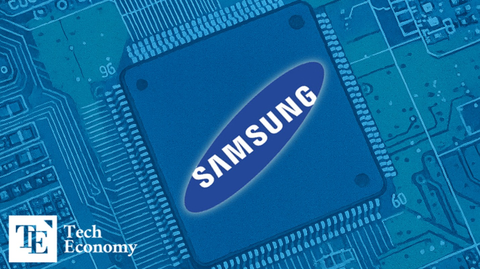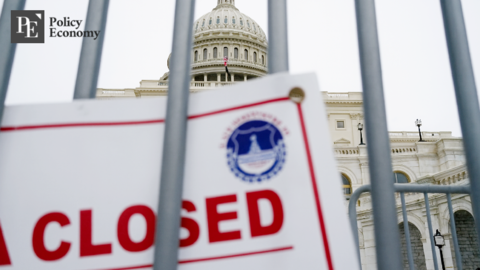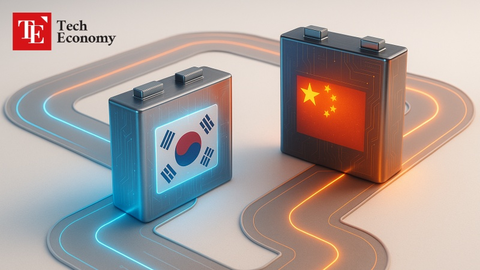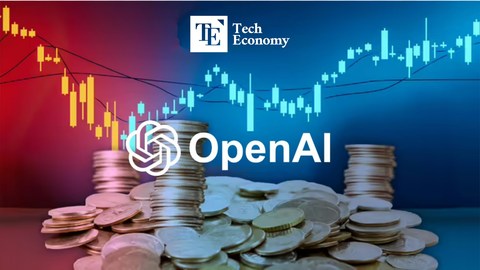AI Investment Boom Sweeps Middle East — WSJ Warns "Beneficiary Companies Should Be Cautious"
Input
Modified
Middle Eastern Countries Intensify Efforts to Develop AI Industry Saudi Arabia Strengthens ‘AI Alliance’ with the U.S. WSJ: “Be Aware of Potential Project Reductions, Cancellations, and Geopolitical Risks”
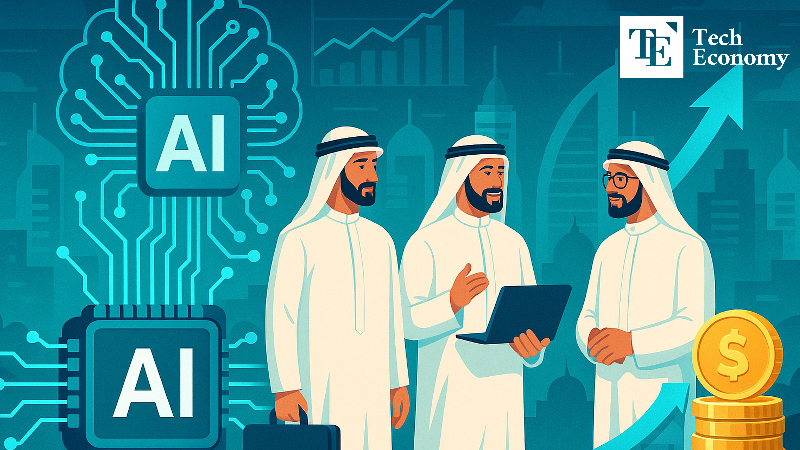
Countries in the Middle East, such as Saudi Arabia and the United Arab Emirates (UAE), are making aggressive investments in artificial intelligence (AI). They are investing substantial sums of money in developing their domestic AI industries while also forming strategic alliances with AI powerhouses like the United States, in an effort to diversify their economies. However, some analysts caution that the AI investment frenzy in the region could cool at any moment, and companies that benefit from it should remain vigilant.
“Oil Money” Pouring into AI
According to the IT industry, on the 17th, Middle Eastern nations are intensifying their focus on developing AI to reduce reliance on the oil industry. The UAE launched the Artificial Intelligence and Advanced Technology Council (AIATC) and established a dedicated investment firm to inject USD 100 billion into the AI sector. It has also created the world's largest global hub for AI and tech companies, the “AI and Web3 Incubator,” and unveiled the “UAE National AI Strategy,” which aims to make the UAE a global leader in AI by 2031.
Saudi Arabia is supporting its AI industry through the “Vision 2030” initiative, an economic reform project announced by Crown Prince Mohammed bin Salman in 2016. The core goal is to diversify Saudi Arabia’s oil-dependent economy by leveraging data and AI. As part of this, Saudi Arabia’s Public Investment Fund (PIF) plans to invest USD 100 billion in AI between 2019 and 2029, focusing on supporting AI startups and building AI infrastructure.
Middle Eastern countries are also investing heavily in AI companies based in the U.S. and other advanced economies. The UAE-backed AI investment firm MGX last year partnered with Microsoft and BlackRock to launch the “Global AI Infrastructure Investment Partnership” (GAIIP), a fund worth over USD 30 billion. MGX also took part in OpenAI’s USD 6.6 billion funding round. Meanwhile, Saudi Arabia’s PIF is reportedly in talks with U.S. venture capital firm Andreessen Horowitz to form a USD 40 billion partnership.
U.S.–UAE AI Cooperation Expands
AI alliances between Middle Eastern countries and the U.S. are becoming increasingly robust. On May 15 (local time), the White House announced an agreement with the UAE to build the largest AI data center outside the United States. This 5GW-capacity center will be located in Abu Dhabi and constructed under the leadership of G42, an AI company backed by the UAE sovereign wealth fund. Although the participating U.S. companies have not been disclosed, market speculation includes AI chip leaders Nvidia and AMD, as well as OpenAI and SoftBank, which are developing the “Stargate Project.”
To facilitate cooperation with the UAE, the U.S. Department of Commerce also signaled plans to remove the “AI Dissemination Rule.” Introduced under the Biden administration, this rule classifies countries into three tiers to regulate the export of U.S.-made AI chips. Tier 1, the “Inner Circle,” includes the U.S. and key allies such as the Five Eyes (the UK, Canada, Australia, New Zealand), major Western European countries, South Korea, Japan, and Taiwan—these countries face no restrictions. Tier 2, comprising countries primarily located in Latin America, the Middle East, and Southeast Asia, can purchase U.S. AI chips but face country-specific quotas. Tier 3 includes 22 nations such as China, North Korea, Russia, Iran, and Syria, which are essentially barred from importing U.S. AI chips.
Following the announcement of these regulatory relaxations, U.S. tech firms began securing major contracts in the Middle East. On May 13, Nvidia announced it would supply 18,000 units of its latest high-performance AI chip, the GB300, to a USD 10 billion data center project led by Saudi-owned AI firm Humane. Nvidia is expected to supply hundreds of thousands more chips to Saudi Arabia over the next five years. AMD, Nvidia’s rival, will also provide AI chips and software for the same project. U.S. network and cybersecurity giant Cisco is contributing its technologies to ensure a secure and efficient AI infrastructure for Humane.

Sustainability of Investment Boom in Question
While U.S. companies are enjoying massive benefits from the Middle East’s AI investment boom, some analysts warn that caution is warranted. On June 16, The Wall Street Journal (WSJ) reported that although Gulf countries such as Saudi Arabia, the UAE, and Qatar are making sweeping AI investments, there is a history in the region of projects being abruptly scaled back or canceled. Doubts remain over whether these AI investments will yield sustainable returns.
Indeed, the region has seen high-profile investment projects suddenly canceled or altered. A prime example is Saudi Arabia’s NEOM project, launched in 2017 to build a futuristic city near the Red Sea, bordering Jordan and Egypt. Spanning 44 times the size of Seoul, it was divided into three major components: The Line (a linear vertical city), Oxagon (an advanced octagon-shaped industrial city), and Trojena (an eco-friendly mountain tourism complex), with a total projected cost of USD 1 trillion.
However, the momentum behind NEOM has noticeably slowed this year, as Saudi Arabia has prioritized funding for major international events like the 2029 Asian Winter Games, the 2030 Riyadh Expo, and the 2034 FIFA World Cup. As a result, NEOM has effectively been relegated in priority. According to fDi Intelligence, an investment-focused outlet under the UK’s Financial Times, Saudi Arabia’s PIF has cut its NEOM-related budget by up to 60% this year. In December 2023, a USD 3.6 billion contract related to NEOM was also scrapped.
WSJ further emphasized that the region’s persistent geopolitical risks cannot be overlooked. The recent military clash between Israel and Iran underscores this reality. Should tensions between the two escalate into full-blown war, the AI investment fever in the Middle East could quickly subside. Prolonged conflict may force governments in the region to shift their political and economic priorities, putting the profitability of U.S. tech companies in serious jeopardy.

